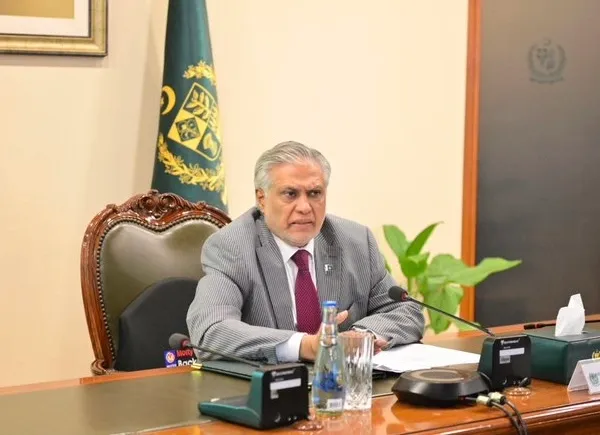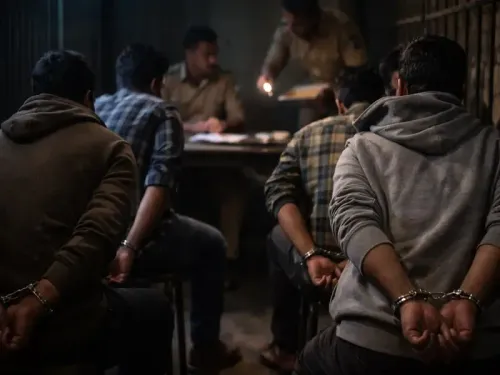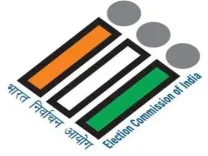Will Pakistan's Foreign Minister Strengthen Ties with Bangladesh?

Synopsis
Key Takeaways
- Ishaq Dar's visit highlights a thaw in Bangladesh-Pakistan relations.
- Historical grievances may be addressed during discussions.
- Diplomatic engagement is crucial for future cooperation.
- Military dialogues have increased recently.
- Both nations are looking for a new chapter in their bilateral ties.
Dhaka, Aug 4 (NationPress) Pakistan's Deputy Prime Minister and Foreign Minister Ishaq Dar is set to embark on a two-day journey to Bangladesh starting August 23, as reported by local media on Monday. This visit will signify the first bilateral engagement by a Pakistani foreign minister in quite some time, coinciding with the increasing warmth between Dhaka and Islamabad since the departure of the Awami League administration led by former Prime Minister Sheikh Hasina last year.
According to diplomatic sources, the prominent Bengali daily Prothom Alo noted that during his stay, Dar will engage in discussions with Foreign Affairs Advisor Towhid Hossain and also meet with Mohammad Yunus, the Chief Advisor to the interim government. The report suggested that Dar will interact with various Bangladeshi political figures during his time in Dhaka.
"The agenda is still under consideration and is expected to be finalized in early August," Hossain stated in response to inquiries regarding the priorities of the upcoming Dhaka-Islamabad foreign ministerial dialogue.
In April, Pakistan's Foreign Secretary Amna Baloch visited Dhaka for Foreign Office Consultations (FOC), which had not occurred for 15 years.
During Baloch's visit, Bangladesh raised the matter of a financial claim amounting to USD 4.32 billion from Pakistan as a rightful share of assets from undivided Pakistan prior to 1971, alongside requesting a formal apology for the genocide perpetrated by Pakistani forces during the Liberation War.
Dar was initially scheduled to visit Dhaka following Baloch's trip but had to cancel due to the tragic April 22 Pahalgam terror attack that resulted in the death of 26 innocent tourists in Jammu and Kashmir.
Relations between Dhaka and Islamabad had been tense throughout the 15-year tenure of the previous Awami League government, largely due to issues surrounding war crimes trials in Bangladesh and broader regional politics. Critical factors in the Bangladesh-Pakistan relationship have consistently included Pakistan's involvement in the 1971 genocide, the return of stranded assets, and compensation.
However, the political landscape has shifted dramatically since the establishment of the interim government led by Yunus in August 2024.
Last year, Yunus and Pakistani Prime Minister Shehbaz Sharif met during the UN General Assembly, where both leaders expressed a commitment to enhance bilateral relations.
In January, four high-ranking officials from Pakistan's infamous Inter-Services Intelligence (ISI), including the Director General of Analysis Major General Shahid Amin Afsar, paid a visit to Dhaka, indicating a significant transition in Bangladesh-Pakistan relations.
A Bangladeshi military delegation commanded by Lt. Gen. SM Kamrul Hasan, the Principal Staff Officer of the Armed Forces Division, also traveled to Rawalpindi — the heart of Pakistan’s military establishment — from January 13 to 18, where they met with the chiefs of the Pakistani army, navy, and air force, underscoring a strengthening military dialogue.
Despite a history marred by the brutal 1971 Liberation War, during which Pakistani forces committed atrocities against millions of Bangladeshis, both nations are now exhibiting signs of rapprochement.










